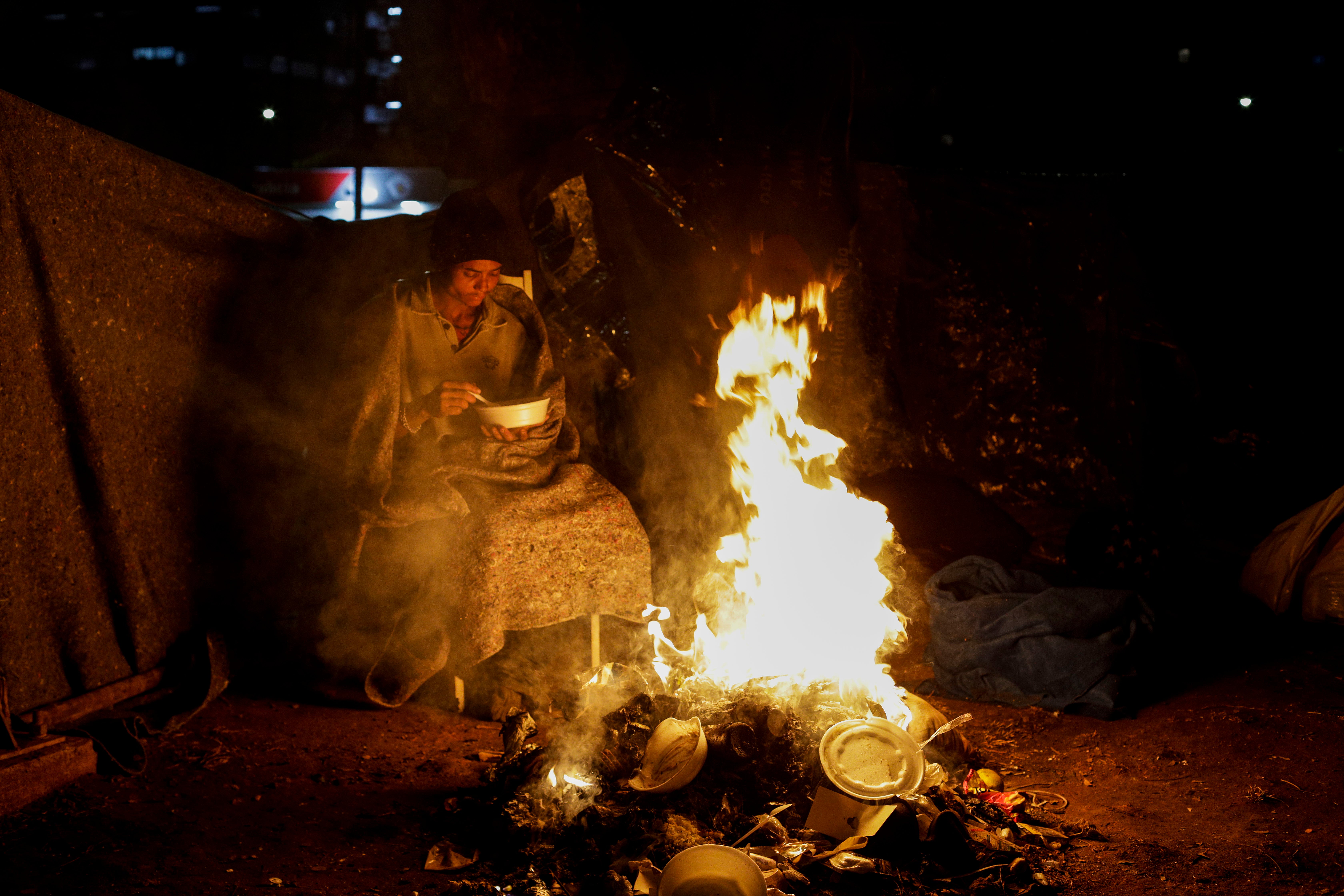Brazil scrambles to shield homeless people from biting cold
A fierce cold snap is bearing down on homeless people in Brazil, and authorities, activists and religious leaders are doing what they can to keep them warm and limit suffering on the streets

A fierce cold snap is bearing down on homeless people in Brazil and authorities, activists and religious leaders are doing what they can to limit suffering on the streets.
Temperatures in some areas of southern Brazil has dropped below freezing, and dozens of cities received snow and freezing rain. That's especially worrisome this year after the pandemic exacerbated homelessness by punishing Brazil's job market and the federal government diminished welfare outlay that was a lifeline in 2020.
Brazil's most populous state, Sao Paulo on Thursday donated 7,500 blankets and 1,000 sleeping bags to organizations that help the homeless.Authorities also transformed one of the state capital's subway stations into a shelter with capacity for 400 people, where they are receiving soup.
The nation's biggest metropolis on Friday recorded its lowest temperature in five years, 40 degrees Fahrenheit (4.4 Celsius), according to the national meteorological institute. It was the second-lowest temperature in over two decades.
Maria Madalena Dutra, 36, was among those who shivered through the night on Sao Paulo's streets as she slept atop blankets beneath a makeshift tarp. Dutra, whose day labor as a maid dried up during the pandemic, said she found no vacancy at a shelter.
“Last night, the cold was so bad that we lit a lighter in our hands to warm up, but it didn't do anything. Yesterday was painful,” she said downtown on Thursday. ”The temperature isn't the only problem. Things get worse when it's cold, windy and raining at the same time.″
The Rev. Julio Lancellotti, a prominent Catholic priest, posted a photo to social media on Wednesday of a dozen people laid out on mats on the floor of his parish. They moved to a shelter set up by City Hall on Thursday.
Low temperatures are expected to endure through the weekend, and start rising gradually thereafter, according to the meteorological institute. Areas of higher altitude in Brazil’s southern region could see temperatures plunge as low as 14 degrees Fahrenheit (-10 degrees Celsius) . Wind chill makes the frigid air even more intolerable.
State governments have stocked gymnasiums with donated bedding. Parana state started distributing tens of thousands of blankets and set up temporary shelters. The government of the southernmost Rio Grande do Sul state was holding a blanket drive on Friday.
Christian Braga founder of the nonprofit Group of Social Attitude that provides food and blankets to the homeless in Sao Paulo, estimates there are twice as many people in the streets this year as a result of the pandemic. He began collecting blankets from friends in 2016, when four people died of cold.
“It seems paradoxical, people dying of cold in a tropical city of a tropical nation like Brazil,” he said. “It shows how we have failed as a society in bringing together efforts to solve the problems." ___ Álvares reported from Brasilia.
Bookmark popover
Removed from bookmarks